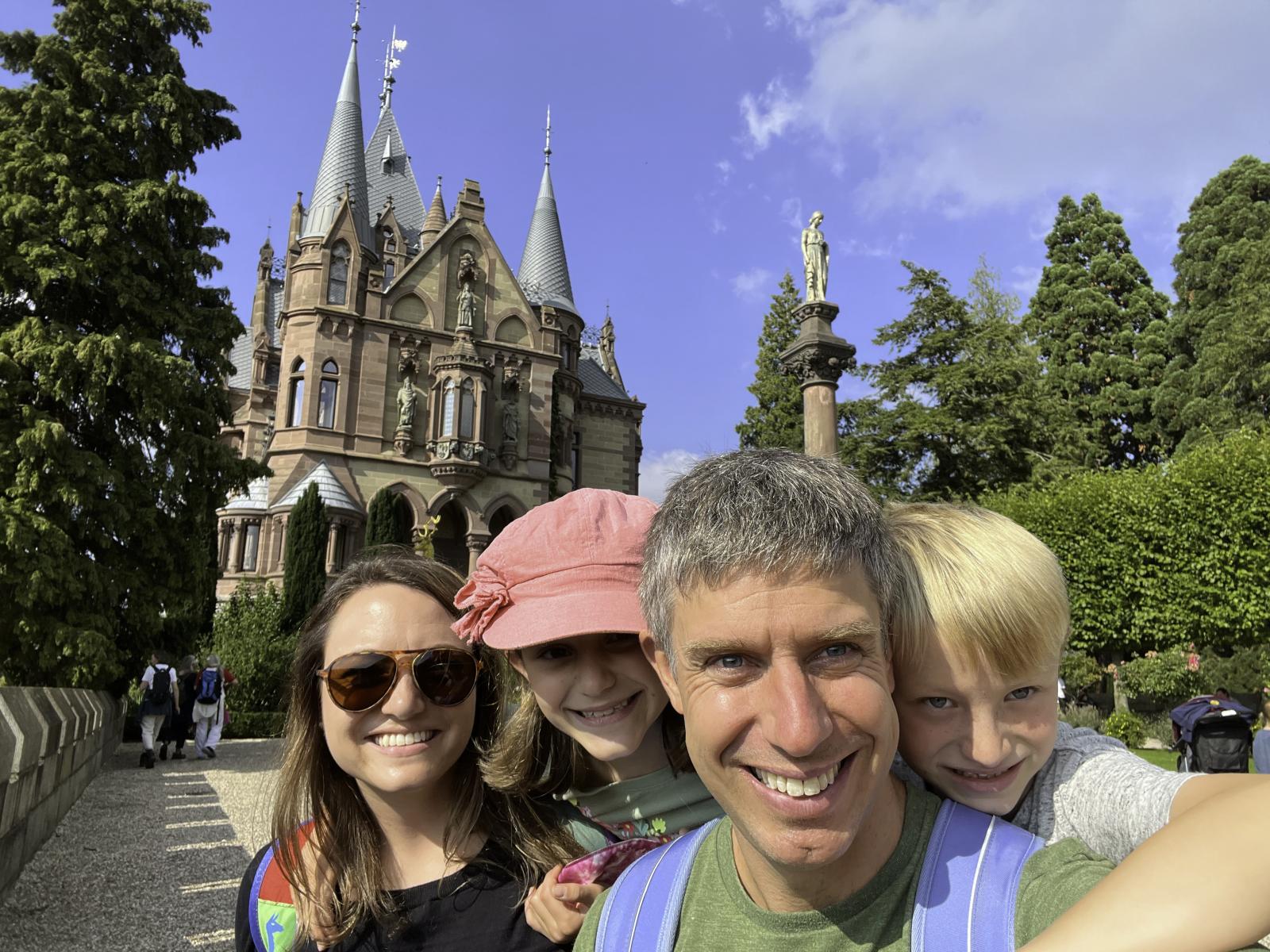
As part of my faculty development fellowship during the 2022–23 academic year, I have had the wonderful opportunity to spend three months at the Max Planck Institute for Mathematics (MPIM) in Bonn, Germany. There are 81 Max Planck Institutes all over Germany (and five more elsewhere), but MPIM is unique in that it’s the only one devoted entirely to pure mathematics.
The institute has a thriving guest program through which graduate students, postdocs, and faculty can apply to visit, for anywhere from a few weeks to several years. I applied to visit MPIM during the months of September, October, and November, and I couldn’t have imagined a better or more productive way to spend my sabbatical so far.
Before the trip, however, there were a few logistical details to tackle, including how I would manage to convince my family to spend three months living abroad. Thankfully, my wife’s employer graciously offered her a leave of absence, and the staff at Lincoln Public Schools were more than willing to work with us to provide instructional materials so that the kids could keep up with their studies. Finally, I was thrilled to learn that I had been selected as a Simons Fellow. The Simons Foundation offers a variety of distinctive opportunities for mathematicians and other scientists, including the Simons Fellowship program, which gives tenured faculty the resources to extend a half-year leave to a full-year leave (and even includes funding to support the travel of my family members).
But back to the mathematical aspects of the trip. MPIM is a terrific environment for carrying out research in low-dimensional topology. Professor Rob Schneidermann of CUNY was in residence as a prestigious Hirzebruch Chair, and I benefited from attending a mini-course led by Rob and MPIM director Peter Teichner. I presented my own work in the topology research seminar, and after interacting with Professor Stefan Friedl from the University of Regensburg, I was invited to give a seminar in Regensburg as well. For this seminar, my family and I traveled to Bavaria to stay in a city steeped in history—our apartment was inside a beautiful 14th-century building. Ana Wright, whom I co-advise with Professor Mark Brittenham, also visited MPIM as a guest for two months while I was here, during which she finished and posted a preprint about some of her dissertation research.
But the most productive aspect of my sabbatical thus far has been sharing an office with my good friend and longtime collaborator, Professor Jeffrey Meier from Western Washington University. As part of my planning, I encouraged Jeffrey to apply to the guest program, too, and we have spent the past three months in Bonn together. Jeffrey and I have been working tirelessly to understand the relationship between the 4-dimensional sphere and a family of group presentations; in addition, we have continued a program to adapt techniques from dimension three to dimension four via a type of decomposition known as a “trisection.”
Our work together has generated beautiful pictures and lovely mathematics, and we intend to write at least one paper based on our discussions in Bonn. A surprising aspect of our results is that a starting point was the data and theorems generated by undergraduate students Hanna Hoffman, Kenji Nakagawa, Rilee Potter, and Ethan Romary, who worked with me at UNL on projects over the course of several summers, funded by the UCARE program and the National Science Foundation.
Jeffrey and I also used our time together to wrap up an ongoing project with two others related to the types of solids that can be bounded in 4-dimensional space by embedded surfaces. In addition, I finished a years-long solo project involving deep connections between the topology, geometry, combinatorics, and algebra of a special type of surface in complex projective space. I also used my time to write and submit several grant proposals: one to the NSF to fund my research, another to the NSF with collaborators to fund a workshop in 4-manifold trisections next summer, and a third with my UNL colleagues to the National Security Agency to maintain funding for NCUWM. I can only hope that I’ll be able to carry this momentum into the remaining months of my sabbatical after I return home.
My family has enjoyed the experience, too. Between exploring the ins and outs of Bonn and taking trips to Cologne, Heidelberg, Salzburg, and Paris, we’ve been plenty busy. But as we near the end of our adventure in Germany, my wife looks forward to returning to work, and my kids are excited to see their friends and teachers. I’d likely be happy to stay for three more months, but as the Germans say, “Alles hat ein Ende, nur die Wurst hat zwei.” (Everything has an end; only the sausage has two.)
- Alex Zupan